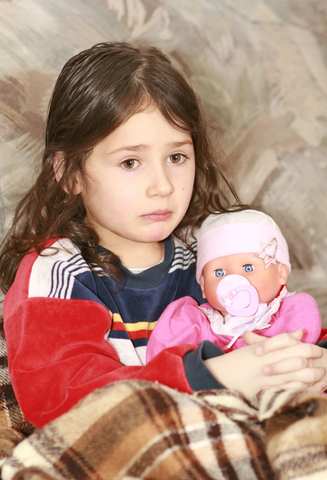Grief & Bereavement
What is Grief:
Is a natural response to loss. It‘s the emotional conjunction of feeling we experience when something or someone we love dies or is taken away. The more significant the loss, the more intense the grief will be. Although, loss and grief are usually associated with death because is often the cause of the most of type of grief, any loss can cause grief, including:

- A Miscarriage.
- Loss of friendship.
- Retirement.
- Loss of health (personal or someone we love).
- Death of a pet.
- Loss of financial stability.
- Divorce or break up.
- Loss of possessions or the family house.

The five states of Grief
-
Denial:
“This can‘t be happening to me, I know is not true.”
-
Anger:
“Why this is happening, it is not fair”
-
Bargaining:
“Make this not happen, and in return I will.”
-
Depression:
“It‘s too much, I am too sad to do anything”
-
Acceptance:
“I‘m in peace with what happened.”
Domestic Violence:


Relationships:
All of life can be seen as a series of relationships that are interwoven and interdependent. Thus, your search for answers is not dependent on your being “in a relationship” with a partner. The reason is because all our relationships, whatever their nature, reflect our primary relationship with ourselves life is a most priceless gift, but if we are to savour the full beauty of this gift, we must be able to relate to life. This means that we must develop the ability to relate to ourselves and to those around us in a meaning-full and fulfilling manner.
We spend most of our lives interacting with people in one way or another, but we mostly don’t know what it means to relate. Our biggest problems arise in our personal relationships. Because we have a whole heap of unvoiced and unfulfilled expectations, warmth and camaraderie become supplanted by anger and blame. We tend to think that a partner has to supply that which we ourselves lack, and so we often involve ourselves in relationships which are debilitating and frustrating, as they are based on sets of conditions and co-dependency, rather than upon mutual appreciation and sharing. Can be categorized in:- Interpersonal relationship
- Intimate relationship
- Ethical relationship
 An interpersonal relationship is a strong, deep, or close association/acquaintance between two or more people that may range in duration from brief to enduring. This association may be based on inference, love, solidarity, regular business interactions, or some other type of social commitment. Interpersonal relationships are formed in the context of social, cultural and other influences. The context can vary from family or kinship relations, friendship, and marriage, relations with associates, work, clubs, neighborhoods, and places of worship. They may be regulated by law, custom, or mutual agreement, and are the basis of social groups and society as a whole.
An interpersonal relationship is a strong, deep, or close association/acquaintance between two or more people that may range in duration from brief to enduring. This association may be based on inference, love, solidarity, regular business interactions, or some other type of social commitment. Interpersonal relationships are formed in the context of social, cultural and other influences. The context can vary from family or kinship relations, friendship, and marriage, relations with associates, work, clubs, neighborhoods, and places of worship. They may be regulated by law, custom, or mutual agreement, and are the basis of social groups and society as a whole. An intimate relationship is an interpersonal relationship that involves physical or emotional intimacy. Physical intimacy is characterized by romantic or passionate attachment or sexual activity. While the term intimate relationship commonly infers the inclusion of a sexual relationship, the term is also sometimes used as a euphemism for a relationship that is strictly sexual. An intimate relationship plays a central role in the overall human experience. Humans have a general desire to belong and to love, which is usually satisfied within an intimate relationship. These relationships involve feelings of liking or loving one or more people, romance, physical or sexual attraction, sexual relationships, or emotional and personal support between the members. Intimate relationships allow a social network for people to form strong emotional attachments.
An intimate relationship is an interpersonal relationship that involves physical or emotional intimacy. Physical intimacy is characterized by romantic or passionate attachment or sexual activity. While the term intimate relationship commonly infers the inclusion of a sexual relationship, the term is also sometimes used as a euphemism for a relationship that is strictly sexual. An intimate relationship plays a central role in the overall human experience. Humans have a general desire to belong and to love, which is usually satisfied within an intimate relationship. These relationships involve feelings of liking or loving one or more people, romance, physical or sexual attraction, sexual relationships, or emotional and personal support between the members. Intimate relationships allow a social network for people to form strong emotional attachments. An ethical relationship, in most theories of ethics that employ the term, is a basic and trustworthy relationship that one has to another human being that cannot necessarily be characterized in terms of any abstraction other than trust and common protection of each other’s body. Honesty is very often a major focus.
An ethical relationship, in most theories of ethics that employ the term, is a basic and trustworthy relationship that one has to another human being that cannot necessarily be characterized in terms of any abstraction other than trust and common protection of each other’s body. Honesty is very often a major focus.
- Communication
- Struggles over home shores
- Struggles with money or ways to use it.
- Sex
- Trust.
- Everyday conflicts.
- Lost interest
